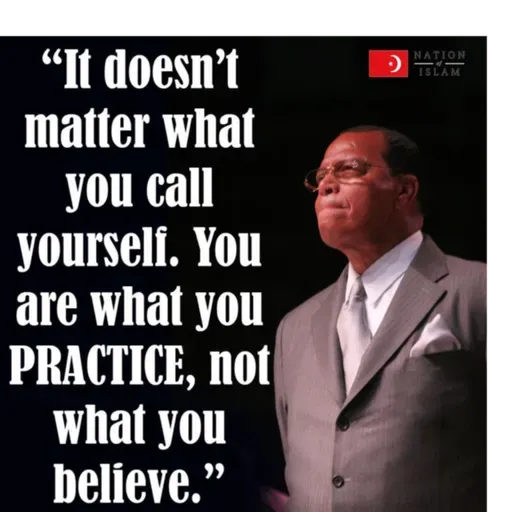
"Minister Louis Farrakhan’s speech to gang members is a powerful call for unity, self-worth, and transformation—challenging young Black men to reject violence, embrace leadership, and reclaim their communities through spiritual awakening and economic empowerment." Your Commonsense Conservative- The Educator
Learning Objectives with Examples
1. Analyze the central themes of Farrakhan’s speech.
o Example: Students identify quotes that reflect unity, leadership, or systemic oppression and explain their meaning.
2. Reflect on the impact of systemic oppression on marginalized communities.
o Example: Students examine local statistics on poverty or incarceration and discuss how these relate to Farrakhan’s message.
3. Identify leadership qualities within themselves and their peers.
o Example: Students list traits of a good leader and share examples of classmates who demonstrate those traits (e.g., organizing events, mentoring others).
4. Critically evaluate media narratives about youth and violence.
o Example: Students compare two headlines—one sensationalized, one balanced—and discuss how language shapes public perception.
📚 Instructional Activities
1. Introduction (10 minutes)
- Introduce Minister Louis Farrakhan and the context of the speech.Share the thesis statement and explain the purpose of the lesson.
2. Video Viewing & Guided Notes (15 minutes)
- Watch selected clips from the speech.Students complete a guided note sheet with prompts like:
- “What message stood out to you most?”“What does Farrakhan say about leadership?”
3. Small Group Discussion (15 minutes)
- In groups of 3–4, students discuss:
- How does Farrakhan challenge stereotypes?What does it mean to be a leader in your community?
4. Media Analysis (10 minutes)
- Present 2–3 headlines or short articles about youth violence.Students identify tone, bias, and compare with Farrakhan’s perspective.
5. Personal Reflection (10 minutes)
- Writing prompt: “What is one way I can lead with purpose in my school or neighborhood?”
📈 Expected Outcomes
Students will:
- Demonstrate comprehension of the speech’s key messages.Engage in thoughtful discussion about leadership and identity.Recognize the influence of systemic issues and media on public perception.Express personal insights through writing and dialogue.Identify practical steps for community engagement and self-improvement.
📊 Formative Assessment: Exit Ticket
At the end of class, participants will complete a brief exit ticket answering:
2. One way you can be a leader in your community.
Comments: blackfreedomofspeech@gmail.com